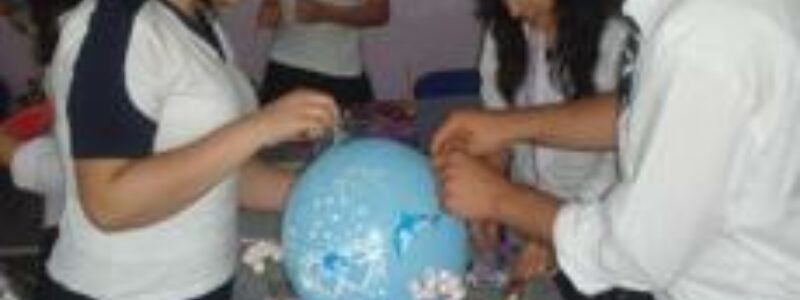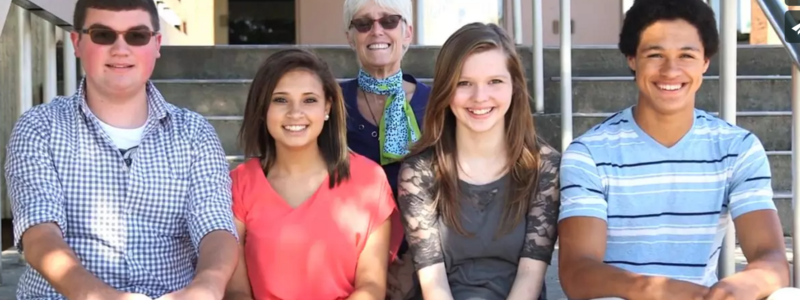Kindred-Family Histories

This plan was designed to enhance iEARN's Kindred-Family History Project, where students explore their family heritage to see the impact of world or local history.
Teacher Goals:
-
That the goals I set for my students are met, and that the student and I are proud of our learning.
-
For me as a teacher to be a facilitator, guide and cheerleader of my students efforts and achievements.
-
For me as a teacher to learn how to participate in a project of this depth and technological complexities.
-
To be able to communicate and share this project and the whole iEARN experience with my colleagues, and to be able to help them reach out across the world.
-
For this experience to have a lasting impact on my student in regards to their view of each other and their international peers.
Student Goals:
- For my students as individuals to connect with their families in a different way where they realize that this family member's life is valuable as a part of historical record.
- For my students to experience an event in history in a personal way so they experience the study of history as being real and relevant to them
- For my students to see that there are two sides to some experiences that may be legitimately viewed in opposing ways and be able to read about them and with an open mind and heart.
- For my students to understand that their fellow classmates come from a variety of backgrounds and religions that they might not have realized. Hence making them more culturally sensitive to the diversity in our class which may not be "visually" apparent.
- For my students by sharing their experiences with their international peers to realize that some human reactions to certain events are universal. For example the loss of a loved one in war, or having to survive and recover from a natural disaster, or the experience of living with every changing technologies. ( I can remember my first TV set)
- For my students to see that there are two sides to some experiences that may be legitimately viewed in opposing ways and be able to read about them and with an open mind and heart.
Curriculum Standares
- Reading 6 - Assess how point of view or purpose shapes the content and style of a text.
- Reading 7 - Integrate and evaluate content presented in diverse media and formats, including visually and quantitatively, as well as in words.
- Reading 9 - Analyze how two or more texts address similar themes or topics in order to build knowledge or to compare the approaches the authors take.
- Writing 5 - Develop and strengthen writing as needed by planning, revising, editing, rewriting, or trying a new approach.
- Writing 8 - Gather relevant information from multiple print and digital sources, assess the credibility and accuracy of each source, and integrate the information while avoiding plagiarism.
- Speaking and Listening 1 - Prepare for and participate effectively in a range of conversations and collaborations with diverse partners, building on others’ ideas and expressing their own clearly and persuasively.
-
Speaking and Listening 3 - Evaluate a speaker’s point of view, reasoning, and use of evidence and rhetoric.
Student Knowledge Acquired:
- an understanding of an historical event, natural disaster, or immigration experience, or an important event by researching the time period or event before interviewing their relative or important person.
- to chose one experience of a peer's ancestor or important person in a different county/ culture and if possible research about that time/ and or experience realizing that the research the might find in English might be culturally loaded.
- to see themselves as part of a world culture.
Introducing the Project to Students:
I have been talking about this class and the iEARN network since the beginning of the year. So, they know they are going to be doing a "project" which will connect them to their international peers.
I will show them some of the stories on the Kindred site and we will read them together as a class. We will then work together to decide what makes a good story. Students will write a rubric together about what makes a good story.
This project is tied into our curriculum because we are supposed to be teaching global education. Due to this course and the readings we have all done, my understanding of what global education really is, has undergone a major change. It is no longer about "teaching about the world" it is about participating in that world by coming to understand and doing work with other teachers and students in different parts of the world. It is the unfolding and the releasing of yet unknown prejudices and misunderstanding of each other. It is learning to have "the conversation." In the end the world belongs to the children. It's fate is in their hands. We need to help them learn to work together and to understand and to care for one another. This is what global education means to me, and this is what I will tell them.
I am going to invite our science teacher to tell her story about the Loma Preta earthquake. This will intrigue the kids as she was on the outdoor ed trip with her students when it happened. They couldn't reach anyone in the Bay Area to make sure that the kid's parents were all right. My students have just been on this trip so it will interest them. We will then talk about how there are different experiences around events that are historical. I will also show them a news account of the earthquake. We will talk about which one is more compelling and how they are different. Then I will show them the project description.
I am not certain exactly what background knowledge they will bring except that they all are technologically savvy. They know how to use a video camera and how to make an I movie. They have have a fairly good idea how to do research on the internet. They are good writers.
As for the substance of the project, the students will be required to make an historical timeline of events both national and international ( at least one for each year) that took place during their interviewee's lifetime. Once the student and the person they are interviewing decide on the topic, I will require them to do more reattach on that topic in order for them to write good interview questions.
Since they are going to write up the interview as a story they will need to make several drafts of the story which will be reviewed by them, their peers and me.
It should demonstrate that they can write about the event from the point of view of the person they interviewed, but I will need to help them understand that there might be other perspectives.
Productivity of Work:
Once my students have identified their ancestor or important person. They will have to decide on a topic. I am hoping students would do their interviews about migration to this country. But, I would imagine that this will have to be mutually agreed upon by the interviewee and the students. I do, however think that they should be aware of some of the historical events that happened during that person's lifetime, so I would ask them to do research to find them using online resources or an Almanac. They should understand what was happening when their family arrived here, if what they chose the topic of migration. If not looking at news and events during their relatives life would be informative. This will provide them with a starting place to begin to find what topic is most interesting to both the student and their relative.
Once the topic has been chosen they should do additional research on it so that they can formulate open-ended interview questions. ( I would have to teach interviewing and formulation of questions) They will share these questions with their interviewee before the interview.
Depending on what events or topics are chosen, it is possible that two students might be doing the same event, for example 9/11. Then they could work together and share information using goggle docs.
I would ask the students to post their research findings on Goggle docs and then share it with me so that I can see what they are finding and can comment on it. ( they can also share with each other if it is appropriate.)
After the students have edited and finished their stories, they will share them with the class. Then they will be uploaded to the Kindred forum.
Once my students have posted in an on iEARN forum, I will have them look at some of the other classes' posts and I will put them in groups to give a reaction to these posts. I am uncertain here whether it is better for them as a small group to respond to one class' posts or whether they should chose a variety of stories from different classrooms around the world to have a larger base. I will contact Judy Barr to see what she thinks is best.
Conclusion of Activity
How will the students draw their projects to a conclusion?
The students will write a process paper that describes what they learned from this project both about themselves as a learner, and also what they have learned about their international peers.
They will do a presentation of their work, and the work they did in commenting to their international peers in an all school assembly.
Identify technological and material requirements
Technological requirements
- computers: we are a laptop school
- video cameras
- conferencing equipment
Material requirement s
- water colors and paper
Assessment
In my work in getting ready for the Kindred project, assessment takes many forms. There are certain skills that students will have to learn before they can do this project. I need to make those are in place as we go along and assess them. In the introduction to the project, after we have looked at some of the stories on the Kindred site, I will have the students make a list about what makes these good stories. Then they will share their ideas with each other. Together we will come up with a list of the components of what makes these particular stories compelling. The students will then write a student written rubric using these points. I have found that when students are trained to write their own rubrics, they not only understand the language because they have written them, but also are more interested in getting high scores.
Middle of project:
During this project, students will keep a log of what they accomplish each day. This might take the form of a blog. In this they will keep track of their experiences during this project, how they feel, (excited, frustrated, stressed jubilant), what they have learned, and what they have learned about themselves as a learner. (e.g. I am a procrastinator)
When they make their time line (after I have shown them how to use an almanac) of the historical events taking place during their interviewee's life, they will turn them in and I will check them for accuracy. Before they start the timeline, I will give a checklist of what must be included, for example they must have a national and international event for each year. I will also have them keep track of their sources on Noodle Tools. After discussing interview questions, and looking at the suggestions from "Story Core", students will peer review each other’s questions, then turn them in to me. I will add my comments. They will conduct their interview. (And video if possible). Put in story form based on the Rubric that they have written about what makes a good story.
Then Peer Edit, them to me for editing. I will comment and mark on scores on rubric Students rewrite- Turn that in to me again to ensure they have edited both for content and form.
In small groups students will chose two stories to respond to on the Kindred site.
Peer edit and collaborate on response. Collaboration graded on Rubric. I check both for content and mechanics, and cultural understanding. I want to ensure depth of response.
Conclusion of project:
Individual process paper: What did they learn from this project both as a person and a learner. These are really interesting to read ( a real bonus!) and they are evidence for me of the affect of the whole project on each individual student. (They will probably do two drafts) I suppose, although I think that Grades sometimes invalidate all of the hard work, each section will have a certain amount of points and the total will yield, a grade. I will have the students present in Assembly what they learned about in this project about themselves and their international peers, and their reaction to it. The community deserves to celebrate all of their hard work. ( they will design the presentation)






